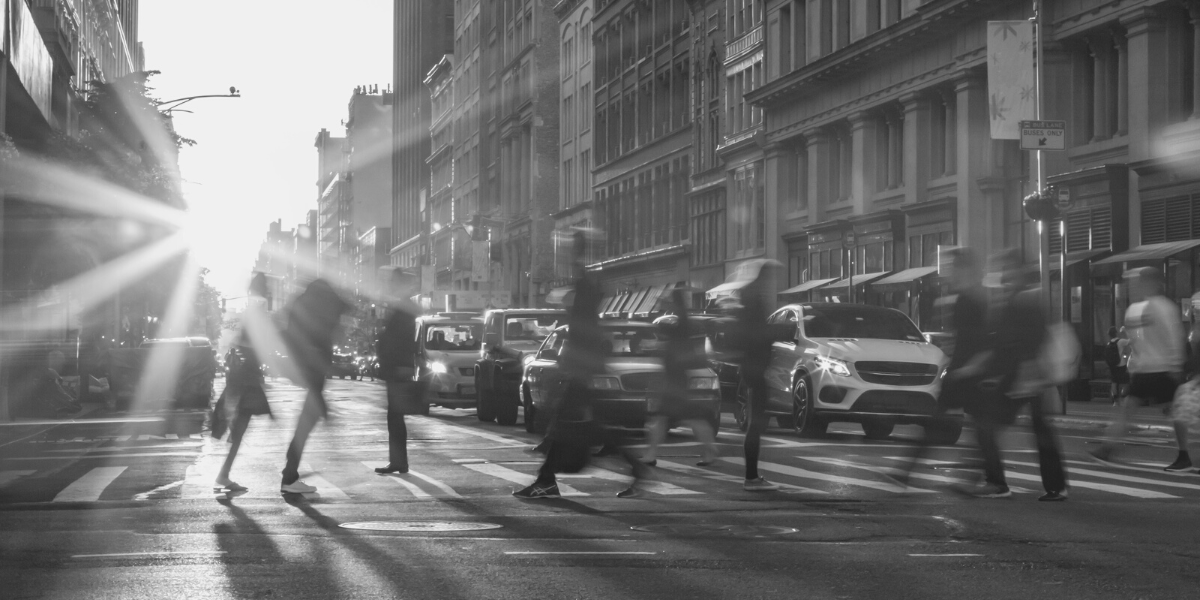To Save The Planet, Should We Really Be Moving Slower by Bill McKibben | The New Yorker
“Every day I see another article that can be boiled down to: If we can just get everyone to buy a new (electric) car by 2030 we won’t go over 1.5*C and things will be fine, or something similar. All the solutions seem to involve buying a lot more stuff. If we just get new cars, reusable drinking straws and pay a little extra to have our food grown in a lab then we can go on living our lives as before. I liked this article from Bill McKibben because he looks at the thing nobody wants to talk about: getting by with less.” – Mitch Vars, Technical Development Specialist, OMF
Recoding America: Why Government Is Failing in the Digital Age and How We Can Do Better by Jennifer Pahlka
“Sometimes innovation isn’t about new technology or flashy new ideas – it’s about getting really good at implementation. I liked this book from Jennifer Pahlka (and her podcast interview with Ezra Klein about the book) because she encourages us to rethink what civic innovation really means in today’s world, while highlighting how detrimental hyper-focus on compliance, process, and procurement can be to delivering on policy goals. This is not only a must-read for policymakers as many have pointed out, but for anyone that wants to help the government succeed in advancing the public good.” – Angela Giacchetti, Director of Engagement & Communications, OMF
National Transportation Safety Board Calls for Technology to Reduce Speeding in All New Cars
“There is no reason a car should be able to go 100 MPH or more on a city street. The National Transpiration Safety Board (NTSB) released a set of recommendations in response to a horrific crash in Las Vegas that killed nine people when a car traveling 103 MPH ran a red light and crashed into a minivan. The NTSB is now recommending ‘intelligent speed assistance technology’, or ISA in cars and trucks. In car technology, that would make it more difficult to drive this fast. In other words: we need our cars to protect us from ourselves and limit the speeds we can drive. The NTSB upped the ante by calling on National Highway Traffic Safety Administration to require that ISA be installed on all new cars. David Zipper had a few things to say about this recently in Fast Company. Let’s take the NTSB recommendations to heart. What if we used existing technology to limit car speeds in school zones to protect our kids as they come and go from class? Just like cities limit the speeds of shared electric bikes and scooters by ‘geofencing’ – creating a digital fence – around crowded or high impact areas, cities can use the same technology to geofence speeds around school zones, and they can use the Mobility Data Specification (MDS) to enforce it, just like they enforce speed limits on shared bikes and scooters today. If we are serious about Vision Zero and our collective efforts to reduce or eliminate traffic fatalities and serious injures these are the steps we know we need to take.” – Andrew Glass Hastings, Executive Director, OMF
What OpenAI’s board drama tells us about the future of artificial intelligence | 1A
“I really enjoyed listening to this podcast because it condensed a year of innovation, influence, impact (and a little drama) of OpenAI’s ChatGPT tool into a short 45 minutes.” – Aylene McCallum, Director of Partnerships & Development, OMF
Cooking Up Code by Romello Goodman | Logic Magazine
“I love any/all discussions that weave and expand our views on technology into the tangible, human shaped tools that are deeply woven into our social fabric, histories, and intimate moments.” – Em Burnett, SMART Collaborative Program Manager, OMF
And, check out these picks from the OMF member community:
New York City’s Battle Against Congestion Begins at the Curb by Skylar Woodhouse | Bloomberg CityLab (Article)
“According to NYC DOT data, about 80% of households in New York City now receive at least one delivery per week; 20% receive four or more. This article shines a light on how critical curb management and congestion pricing can be for cities to dynamically manage their curb space. As this pressure placed on the curb spreads from dense major cities to more suburban cities with congested city centers, the adoption of consistent data standards has never been more important.” – Ali Barsamian, Populus
New Approaches to Road Safety: How Vianova uses connected vehicle data to create safer streets | Vianova Road Safety White Paper
“Explore how Vianova is changing the way we think about road safety. Dive into our white paper to learn about the benefits and challenges of using connected vehicle data. See how this data helps make smarter decisions, identify risks, and move closer to making our city streets safer with Vision Zero.” – Iris Fernandez, Vianova




